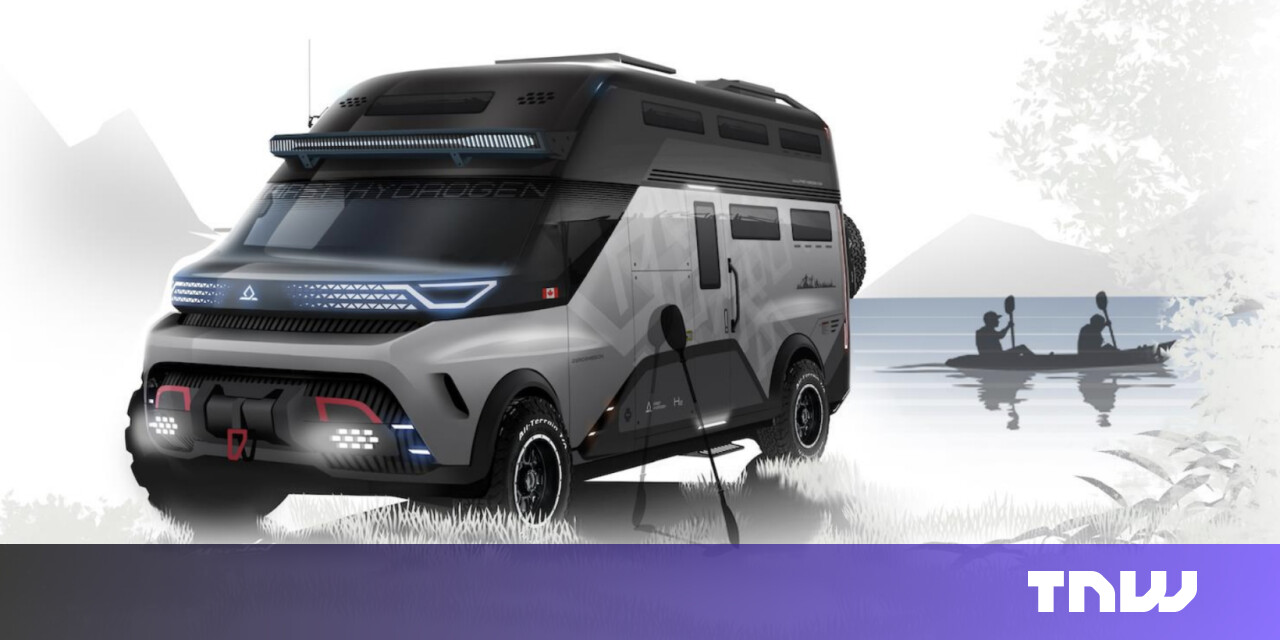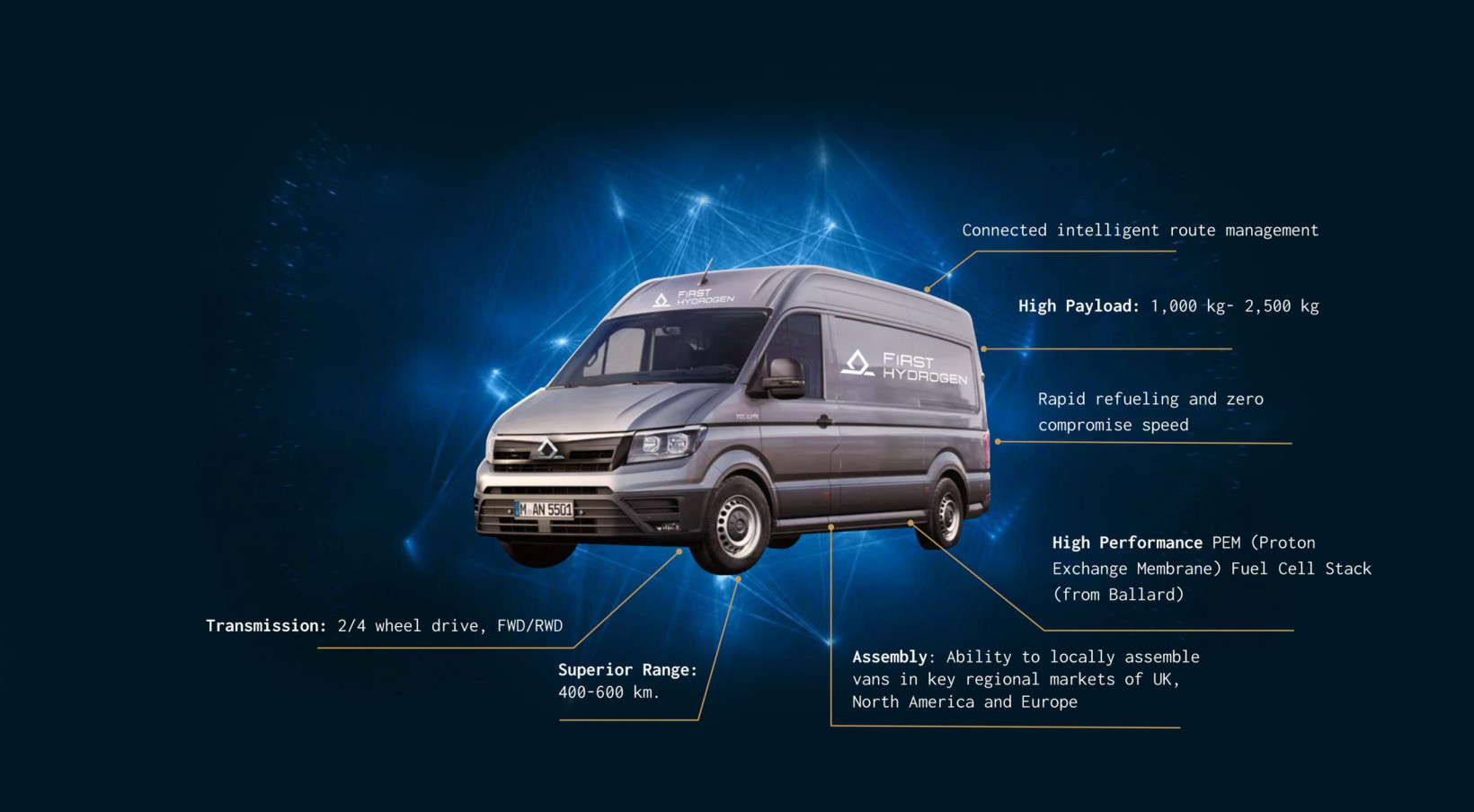
Not too far in the future, camper lovers could be going on holidays that are much kinder to the very nature they are looking to enjoy. At the beginning of this week, London and Vancouver-based startup First Hydrogen revealed the design for its next-generation zero-emission Recreational Vehicle (RV).
The concept has been developed in collaboration with Switzerland-headquartered EDAG Group. Its introduction follows the presentation of First Hydrogen’s next-generation light commercial vehicle (LCV), also a result of a partnership with the global mobility expert.
The company states that the first generation of its fuel cell electric vehicles (FCEV) have already entered road trials with members of the UK Aggregated Hydrogen Freight Consortium (AHFC), starting with fleet management company Rivus.
They will be tested for several different use cases, including delivery of groceries and parcels, health care and roadside assistance. First Hydrogen will then use data and feedback from the road trials to inform the development of its Generation II vehicle.
Hydrogen fuel cells superior to battery EVs?
First Hydrogen’s vehicles are powered by high performance Proton Exchange Membrane (PEM) fuel cell stacks supplied by Ballard Power. This generates electricity by converting chemical energy stored in hydrogen fuel into electrical energy, using a proton-conducting polymer membrane as the electrolyte. They operate at relatively low temperatures (50 to 100 °C) and can quickly vary output to meet shifting demand, which makes them a good fuel cell choice for the automotive industry.
The company says this gives it a leg up on regular EVs as the hydrogen FCEV can carry heavier payloads. Furthermore, it takes much less time to refuel the hydrogen than it takes to recharge an electrical battery. The next-generation LCV range is projected at 500+ km.
“These concept vehicles provide a glimpse of our company’s future and give a clear indication of our brand direction within the LCV space,” said Steve Gill, CEO of Automotive for First Hydrogen.

While the quest to decarbonise road transport is admirable in and of itself, there is also a solid financial foundation for the product: the global LCV market is projected to reach €686 billion by 2030. For the RV market, the corresponding prediction for the end of the decade is just under €107 billion.
In Europe, RV sales hit an all-time high in 2021 with 260,000 new vehicles sold, very likely spurred by restrictions following the global health crisis. Here, First Hydrogen identifies particular opportunities with an often eco-conscious campervan crowd.
“The First Hydrogen campervan is an example of how we see hydrogen fuel cell and other electric vehicle technologies having wider applications,” Gill added.
Looking to increase green hydrogen production
As with most startups working with hydrogen, First Hydrogen has to ensure that there will be enough to supply its products. No one will purchase a vehicle that cannot be powered after all, no matter how zero-emission it may be.
Furthermore, the hydrogen needs to be green, meaning produced using renewable energy, otherwise the eco-friendly concept goes out the window. In summer last year, First Hydrogen applied for funding from the UK Government’s £240 million (€272 million) Net-Zero Hydrogen Fund (NZHF).
The company’s two green hydrogen production projects will have an initial capacity of 40MW each and be situated in the Greater Manchester area and the Thames Estuary. The second round of NZHF competition is currently underway for both development and capital expenditure.







